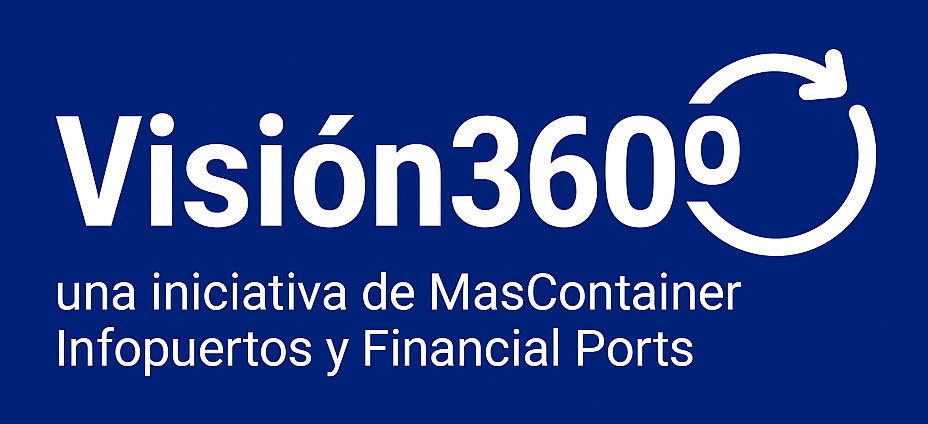 Carlos Dalmau, Director of International Business at Banco Sabadell since 2011, leads the Bank’s team of International Business Specialists, who are distributed throughout Spain.
Carlos Dalmau, Director of International Business at Banco Sabadell since 2011, leads the Bank’s team of International Business Specialists, who are distributed throughout Spain.
With a specialized service and support model for companies—both in the early stages of foreign trade and during international expansion—the main focus is on providing financial products and services that best suit each company’s needs. The ongoing professional support from specialists and continuous training have been consistent features of Carlos’s professional career.
What is your view on global trade in today’s complex geopolitical environment?
International trade is undergoing a profound transformation, marked by geopolitical tensions, changes in tariff policies, technological evolution, and new dynamics in multilateral cooperation. Assessing its current state requires a holistic view that combines economic indicators, political decisions, and structural trends.
According to the UN Conference on Trade and Development (UNCTAD), global trade entered 2025 on stable ground, following a record expansion in 2024 that reached $33 trillion. However, this resilience is under pressure due to trade imbalances, geopolitical tensions, and shifts in supply chain strategies.
Companies have moved away from consolidating their supply chains and are instead diversifying them through practices such as friendshoring and nearshoring, which adds complexity but reduces risks.
The World Trade Organization (WTO) projects moderate growth for 2025: 3% in exports and 3.6% in imports, indicating sustained recovery after years of volatility.
From a financial perspective, how can banks contribute to today’s global supply chain?
In a global economic environment defined by geopolitical uncertainty, accelerated digitalization, and the need for operational resilience, the role of financial institutions in the supply chain has become more strategic than ever.
Banco Sabadell, with its strong roots in the Spanish business ecosystem and its focus on SME financing, is positioned as a key player in strengthening and energizing global supply chains.
For example, in terms of specialized financing for exporting and importing companies, Banco Sabadell has established itself as a trusted financial partner for businesses operating in international markets.
Through products such as import/export financing, international discounting, documentary credits, international guarantees, factoring, and confirming, the bank provides liquidity and risk coverage for cross-border operations. This ability to adapt to the financial needs of foreign trade is essential to maintaining the fluidity of supply chains.
In addition, the bank has strengthened its macroeconomic and sectoral analysis, providing companies with strategic insight to anticipate risks and opportunities in their global operations.
Banco Sabadell has also mapped out an ambitious roadmap in sustainable finance. This includes loans to companies implementing sustainable practices in their supply chains, such as energy efficiency, clean transport, or circular economy initiatives.
From a financial perspective, Banco Sabadell contributes to the global supply chain not only as a credit provider, but as a facilitator of resilience, sustainability, and digital transformation.
Its focus on SMEs, its economic analysis capabilities, and its commitment to sustainability make it a strategic ally for companies seeking to adapt to an increasingly complex global landscape.
What services and activities have you planned to foster interaction with your global clients?
We can all agree that in today’s increasingly interconnected business environment, engaging with global clients has become a strategic pillar for organizations seeking to differentiate themselves, build loyalty, and grow.
At Banco Sabadell, through its International Business Division, a series of services and activities have been deployed to strengthen these relationships from multiple angles: digitalization, specialization, sustainability, and operational proximity.
Banco Sabadell operates under a structured relationship model centered on International Business Directors. This model ensures specialized, coordinated service that is also geographically close to clients.
The bank actively participates in various international forums that explore investment opportunities and collaborations with local institutions. These initiatives strengthen Banco Sabadell’s presence in strategic markets and promote direct engagement with global clients.
Client interaction is no longer limited to traditional commercial service—it now demands a blend of technology, expertise, and strategic vision.
Banco Sabadell has designed a comprehensive ecosystem of services and activities that not only meets current expectations but also anticipates the future needs of its international clients.
Is Latin America a distinct target market for your organization?
Banco Sabadell has reaffirmed its commitment to growth through a selective approach to international markets.
Within this framework, Latin America emerges as a region of interest—not necessarily as a priority market for mass expansion, but rather as a space for specific opportunities and strategic alliances.
The bank’s direct presence in Latin America is mainly concentrated in Mexico, where it operates a network of offices through its subsidiary, Banco Sabadell Mexico.
This presence follows a growth strategy focused on corporate banking and structured finance in the Mexican market.
Banco Sabadell has opted for a more specialized approach, concentrating on business clients and high-value-added operations.
Latin America represents a differentiated space of strategic opportunities. The bank’s approach is grounded in specialization, prudence, and close support for international clients—more than in broad-based expansion.

Do you believe there is anything particularly important that clients should consider when expanding internationally, and how can Banco Sabadell support them?
Expanding internationally is a strategic decision that can transform a company’s future. However, it also brings risks, operational complexity, and the need for experienced partners. In this context, Banco Sabadell positions itself as a key financial ally, offering comprehensive solutions and specialized support.
To assist companies, we’ve developed an informative and educational program called Exportar para Crecer (“Export to Grow”), where we share the strategic keys to successful international expansion—lessons we emphasize time and again:
-
Planning: understand the target market, its legal, fiscal, and logistical frameworks;
-
Currency and financial risk management: protect profit margins from exchange rate volatility;
-
Selecting secure payment methods: such as documentary credits or international guarantees; and
-
Cultural and regulatory adaptation: be aware of cultural differences and local compliance requirements.
That said, Banco Sabadell seeks to integrate expert guidance and international network support into its international products and services. We focus on markets with strong synergies for Spanish companies, such as Mexico, Morocco, the UK, France, China, the United States, Algeria, Turkey, India, and the UAE.
Having an external network allows us to offer personalized advice across working capital financing, payment and collection instruments, and foreign exchange risk coverage.
Additionally, the bank has developed digital platforms like the International Business Portal, where companies can request expert advice, consult country reports, and access webinars and industry-specific events. We’ve also launched Sabadell Forex, a fully digital tool to streamline foreign exchange operations.
In truth, internationalization is not just an opportunity—it is a strategic necessity for many companies.
It demands preparation, knowledge, and expert support. Banco Sabadell offers a differentiated value proposition built on experience, global reach, financial solutions, and personalized guidance. In an increasingly interconnected global marketplace, having a partner like Sabadell can make the difference between a successful expansion and a failed attempt.





